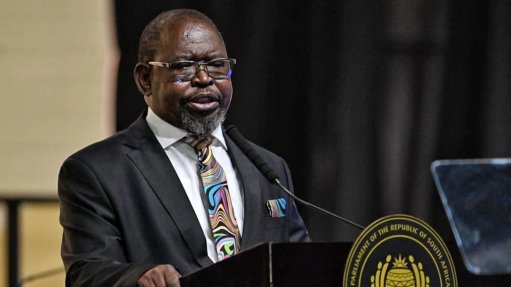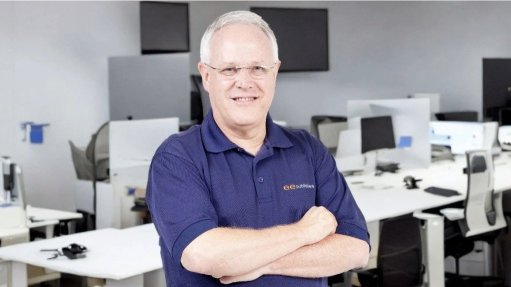Roadmap sets out the critical skills South Africa needs for a just energy transition
The South African National Energy Association (Sanea), together with the University of the Witwatersrand (Wits), has launched an ‘Energy Skills Roadmap’ for South Africa, highlighting the human capacity skills necessary to deliver the technical energy solutions and socioeconomic improvements that make up a just energy transition.
The roadmap is informed by research, gap analysis and stakeholder engagement workshops having been undertaken in earnest since 2020 by Sanea, Wits’ Centre for Researching Education and Labour (REAL) and Wits Business School’s African Energy Leadership Centre.
The research is supported by the South African BRICS (Brazil, Russia, India, China and South Africa) Business Council and was funded by the Deutsche Gesselschaft fuel Internationale Zusammenarbeit (GIZ).
GIZ promotes inclusive societies, economic development, climate change mitigation measures and the transition to new energy sources in South Africa.
Sanea chairperson Kiren Maharaj said the deepening energy crisis in South Africa, coupled with emerging global and domestic trends towards cleaner energy, had put pressure on the sector to transform. As a result, huge uncertainty existed, which necessitated a skills roadmap that was responsive and took into account the changing terrain.
“This means that flexibility and contingencies need to be built into any skills roadmap, as well as continual tracking of the environment as uncertainties unfold,” she added.
Some of the key trends influencing skills requirements include technology drivers – such as renewable energy and hydrogen, energy storage and smart technologies. Other developments such as ‘prosumerism’, which involves people producing their own electricity at a lower cost than buying electricity from municipal or national grids; and new business models, greening of systems, sector coupling, new value chains and the acceleration of social change have also been examined for their impact.
Sanea and Wits deem the biggest influencing factors around the South African energy system and requisite skills as the widening energy cost gap, socioeconomic considerations such as youth employment, deteriorating energy security, climate change mitigation and adaptation, the shift towards sector coupling, evolving energy markets, automation and digitalisation.
The researchers factored these trends into the analysis of both the supply and demand for skills in the next 50 years. The energy skills roadmap does a deep dive into the specifics of the jobs and corresponding skills these changes will require.
REAL director Dr Presha Ramsarup explained that the process around the development of the roadmap marked a significant departure for the sector as a whole, as it brought together government, business, labour, research and civil society stakeholders to jointly identify what skills were needed both now and in future, and, in turn, what educational responses were needed.
She pointed out that skills were often tagged on at the end rather than coherently planned for as an integral part of industrial and technical planning.
DEEP DIVE
Sanea secretary general Wendy Poulton said the ‘Energy Skills Roadmap’ had found there was an adequate supply of traditional energy courses; however, they largely lack a focus on areas of specialisation. For example, specialisations that deal with renewables and clean energy.
This is in contrast to industry developments where the provision of electricity is largely biased towards renewables – particularly solar, but not so much on grid integration and energy efficiencies.
The energy-related labour market in South Africa is distributed across coal (40%), oil and petroleum (38%), natural gas (8%), renewable energy (8%), electricity (6%) and marginally in nuclear.
Skills that are currently required and which are expected to be required in the future, include fields such as technical competencies for maintenance, such as accredited electricians, diesel mechanics, welders and boilermakers, as well as electricity distribution skills, such as grid maintenance skills.
Additionally, there is a whole area of skills required to deal with the enabling jobs and occupations such the legal regulatory environment, pricing and finance.
Poulton explained people would typically have to be multi-skilled in what was becoming a more dynamic environment. However, the most in-demand occupations for fixing deteriorating energy security relate to maintenance and infrastructure (including substation planners and electrical engineers), system management (such as power distribution managers, project managers and statistical modellers) and governance (such as auditors, finance directors and senior government officials).
The top-most commonly cited occupations in demand are electrical engineer, power distribution engineer, electrical engineering technician, environmental scientist, process design engineer, power transmission engineer, electrical engineering technologist, social scientist, operations manager for production, policy adviser, investment analyst, finance director, human resource manager, business development manager, supply chain practitioner, electrician, environmental engineer, public policy manager, lawyer, regulatory affairs officer, maintenance planner, legal adviser and marketing practitioner.
Among the ‘critical’ occupations in the energy transition include air-conditioning and refrigeration mechanics, civil engineers and technicians, and construction project managers. Among the soft skills identified as critical are communication, project management, leadership, emotional intelligence and problem solving.
In terms of the general response of technical and vocational education and training (TVET) colleges and universities, it was found to be fragmented rather than the coordinated response required to deal with the energy transition.
Another key issue to emerge from the ‘Energy Skills Roadmap’ is that, as the energy transition unfolds, it is expected to be a decentralising process which will require more localised capability.
In view of this, the role of community and TVET colleges in areas where renewable technology is emerging will become important in terms of provision, as in the case of the Northern Cape. It would appear that, currently, these institutions are not being sufficiently responsive to such developments.
The demand for future skills is expected to be shaped by climate change and decarbonisation, thus concentrating skills demand in electrical maintenance, energy efficiency, energy planning, ongoing monitoring and solution-finding skills.
Other findings in the ‘Energy Skills Roadmap’ include that the public service sector has largely been focusing on traditional energy jobs while the private sector is being more responsive to renewables and alternate technologies and is looking for specialists in, for example, green hydrogen and in other areas that will support their energy transitions.
Ultimately, what the ‘Energy Skills Roadmap’ illustrates is that for the broader energy sector to cope with future uncertainty and rapid change, a multipronged approach that includes ongoing engagement and more systematic skills anticipation processes that bring together key stakeholders – both in demand and supply – will be needed.
The researchers agreed that, overall, ongoing engagement around skills and future demand patterns, including latent demand, was critical.
The full report comprising Sanea and Wits’ research will be available on January 30.
Article Enquiry
Email Article
Save Article
Feedback
To advertise email advertising@creamermedia.co.za or click here
Press Office
Announcements
What's On
Subscribe to improve your user experience...
Option 1 (equivalent of R125 a month):
Receive a weekly copy of Creamer Media's Engineering News & Mining Weekly magazine
(print copy for those in South Africa and e-magazine for those outside of South Africa)
Receive daily email newsletters
Access to full search results
Access archive of magazine back copies
Access to Projects in Progress
Access to ONE Research Report of your choice in PDF format
Option 2 (equivalent of R375 a month):
All benefits from Option 1
PLUS
Access to Creamer Media's Research Channel Africa for ALL Research Reports, in PDF format, on various industrial and mining sectors
including Electricity; Water; Energy Transition; Hydrogen; Roads, Rail and Ports; Coal; Gold; Platinum; Battery Metals; etc.
Already a subscriber?
Forgotten your password?
Receive weekly copy of Creamer Media's Engineering News & Mining Weekly magazine (print copy for those in South Africa and e-magazine for those outside of South Africa)
➕
Recieve daily email newsletters
➕
Access to full search results
➕
Access archive of magazine back copies
➕
Access to Projects in Progress
➕
Access to ONE Research Report of your choice in PDF format
RESEARCH CHANNEL AFRICA
R4500 (equivalent of R375 a month)
SUBSCRIBEAll benefits from Option 1
➕
Access to Creamer Media's Research Channel Africa for ALL Research Reports on various industrial and mining sectors, in PDF format, including on:
Electricity
➕
Water
➕
Energy Transition
➕
Hydrogen
➕
Roads, Rail and Ports
➕
Coal
➕
Gold
➕
Platinum
➕
Battery Metals
➕
etc.
Receive all benefits from Option 1 or Option 2 delivered to numerous people at your company
➕
Multiple User names and Passwords for simultaneous log-ins
➕
Intranet integration access to all in your organisation


















